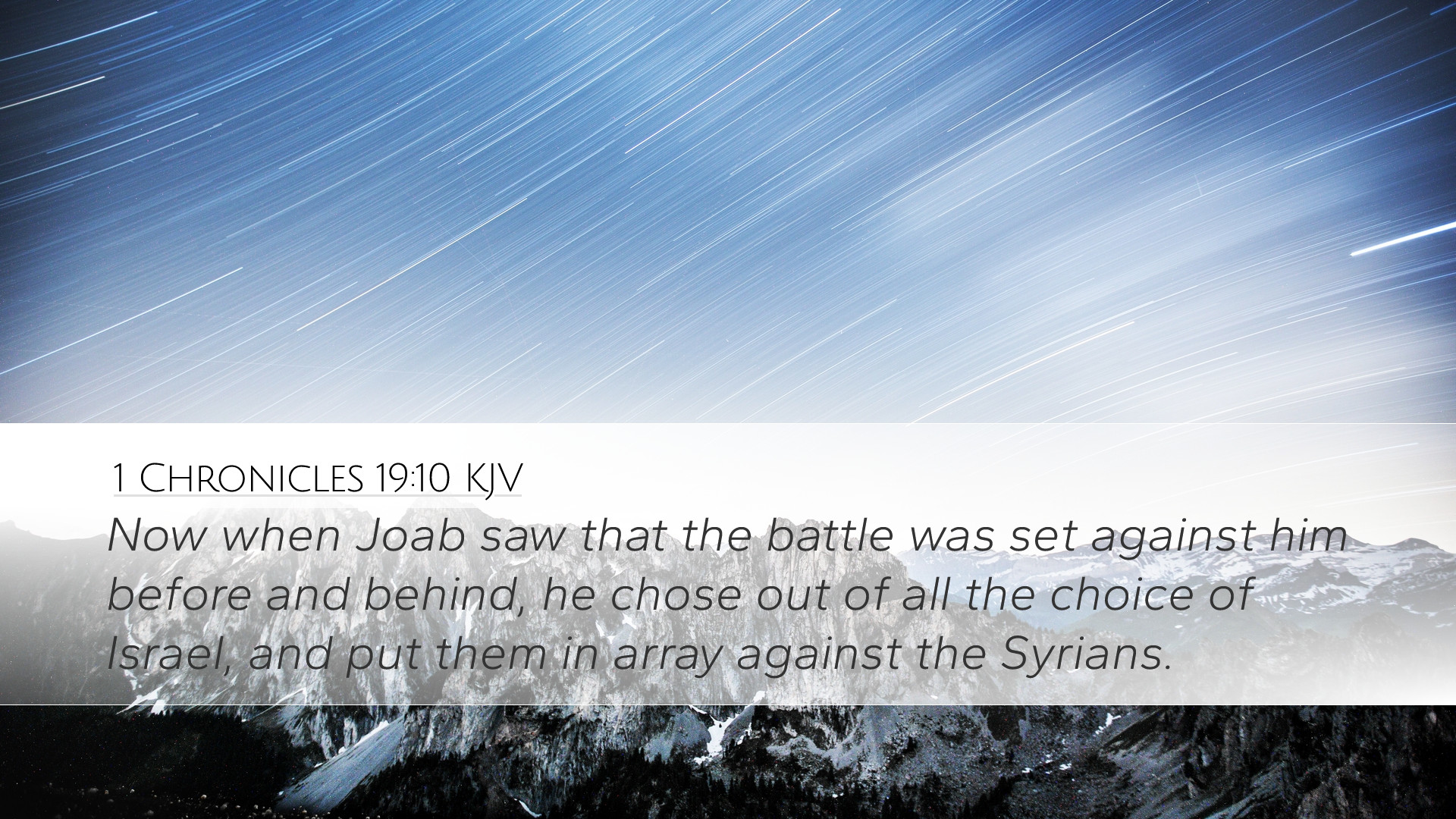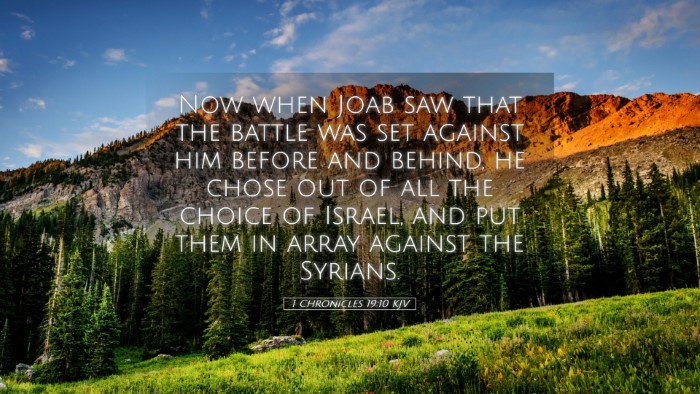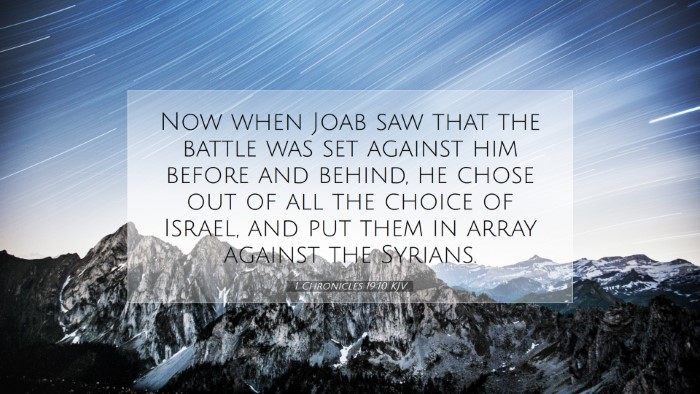Commentary on 1 Chronicles 19:10
1 Chronicles 19:10 states: "But when David heard that, he sent Joab, and all the host of the mighty men." This verse captures a pivotal moment in the narrative surrounding King David, the conflicts he faced, and the leadership decisions made in critical situations.
Contextual Analysis
The backdrop of this verse lies within a larger historical and theological framework. David, as a ruler of Israel, was frequently engaged in warfare, not merely for territorial expansion but also for the defense of Israel against neighboring nations. The Chronicles serve to remind the readers of the faithfulness of God and the importance of adhering to His commands in governance.
Insights from Matthew Henry
Matthew Henry elaborates on the significance of David’s response to the Ammonite aggression. He highlights how the incident reflects David's commitment to justice and righteousness. Rather than reacting impulsively, David’s decision to send Joab and his mighty men demonstrates a calculated approach to military leadership.
- Leadership Qualities: Henry notes that David displayed wisdom in selecting Joab, a capable commander, suggesting that leaders must recognize and utilize the strengths of their subordinates.
- Divine Providence: Henry emphasizes that God’s providence guides leaders. The unfolding events of conflict are under God’s sovereign hand, which encourages believers to trust in divine guidance during troubled times.
- Preparedness for Battle: The mention of "mighty men" indicates that preparation and strength were essential to David's strategy, a principle that remains relevant for contemporary leadership and ministry contexts.
Insights from Albert Barnes
Albert Barnes offers a more detailed exploration of the political and military dynamics surrounding this verse. He points out the strategic implications of David's actions and the cultural significance of warfare in ancient Israel.
- The Role of Diplomacy: Barnes notes that David's initial reaction might have included diplomatic efforts before resorting to military action, underscoring the importance of peaceful resolutions where possible.
- Military Might: The reference to "all the host of the mighty men" suggests a deliberate show of force, a necessary aspect of ancient Near Eastern politics that aimed to deter adversaries through displays of strength.
Insights from Adam Clarke
Adam Clarke provides a pastoral interpretation of 1 Chronicles 19:10 that resonates deeply with spiritual leaders and scholars.
- Divine Alignment: Clarke suggests that the conflict was not only political but also a test of David's faithfulness to God's covenant. Leaders must continually align their actions with divine will.
- Godly Counsel: He emphasizes the importance of counsel in leadership, indicating that surrounding oneself with wise and courageous advisors is crucial, akin to David’s reliance on Joab.
- Spiritual Warfare: Clarke draws parallels between military conflict and spiritual warfare, encouraging leaders to recognize that not all battles are fought on physical turf; some require spiritual vigilance and prayer.
Theological Reflections
The theological implications drawn from 1 Chronicles 19:10 are manifold, extending across the themes of trust, leadership, and divine sovereignty.
- Trust in God’s Sovereignty: This verse illustrates a moment of reliance on God amidst threats, teaching pastors and theologians about the importance of prayerfully seeking God's will in decision-making.
- The Nature of Leadership: David’s actions reflect the complexities of leadership; leaders are called to act justly and wisely amidst adversity, relying on their capabilities and those of their trusted allies.
- Covenantal Faithfulness: The narrative invites reflections on God’s faithfulness to His people, as seen through David's actions, reminding leaders of their covenantal responsibilities.
Conclusion
In summary, 1 Chronicles 19:10 encapsulates essential themes of leadership, divine guidance, and the interplay of politics and faith. Drawing from the insights of Matthew Henry, Albert Barnes, and Adam Clarke, we see a profound illustration of how leaders ought to navigate challenges, highlighting the need for wisdom, counsel, and a heart aligned with God's purposes. This verse not only serves as a historical account but also as a timeless lesson for pastors, theologians, and scholars in their respective ministries and studies.


